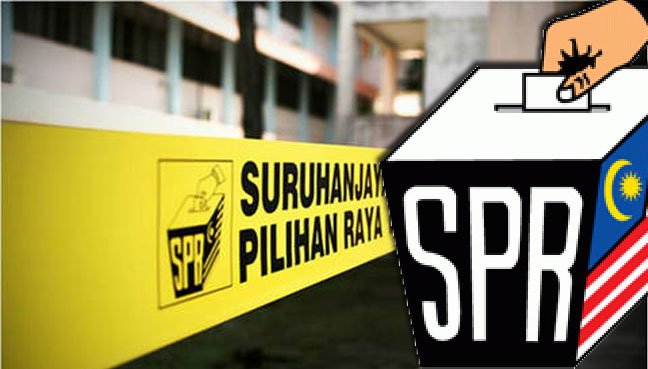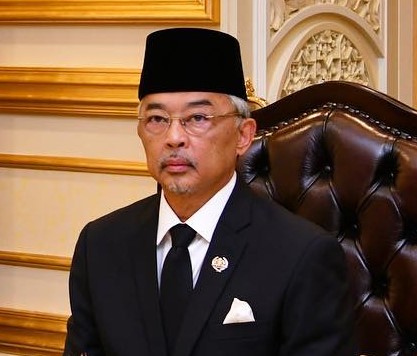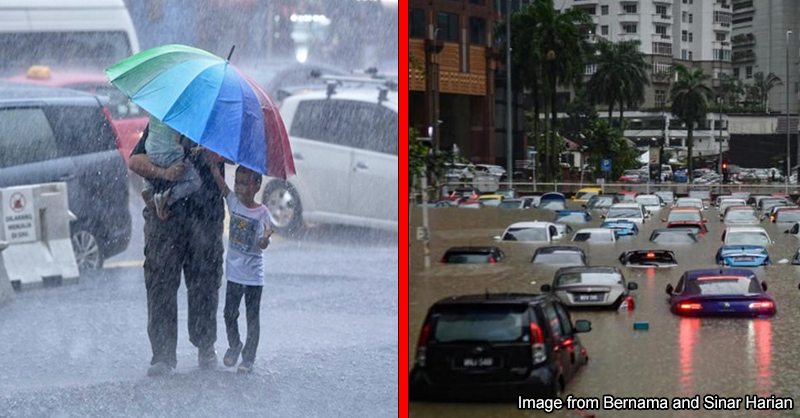How bad do the floods need to be for GE15 to be postponed?

- 210Shares
- Facebook182
- Twitter6
- LinkedIn6
- Email8
- WhatsApp8
Imagine if, after we’ve bought all our World Cup merch and applied for leave to watch the games, suddenly we find out that FIFA has canceled the World Cup.

Although that seems a highly unlikely scenario (unless something REALLY major breaks out, like, idk, WWIII), it’s a not-so-distant possibility that this might happen to GE15.
Let’s face it, when elections were called and scheduled for flood season, there were always going to be doubts; even the Agong himself was iffy on the timing:
“His Majesty expresses disappointment with the current political development and had no choice but to agree to the prime minister’s request to return the mandate to the people to elect a stable government.” – Istana Negara
Unfortunately, floods are already happening in several states, but suppose it got to the point of making it impossible to carry out the polling in certain areas, who would actually have the authority to postpone, or even cancel the elections?
The Election Committee has the power to call off elections
Yep, the Election Committee (EC) are pretty much the ones who decide when an election takes place following dissolution of Parliament. And this comes from the PM himself:
“If major floods occur to the extent of preventing people from going out (to vote), then I will discuss with the EC to see if there are alternatives.. It is up to the EC if it wants to stop the election.” – Ismail Sabri

That’s not all though, the Election Commission, as their name suggests, actually have a lot of power when it comes to elections; the Constitution says they can even review constituencies (which basically means they can alter the maximum number of people who can vote in any one constituency).
With that being said, they’re not the only people who can put a stop to elections.
The Agong can do it too… but indirectly
Yes, if things get too bad (like, water up to neck-level bad), the Agong can personally step in and declare a localized state of emergency. What do we mean by localized? Well, because of the nature of Malaysia’s terrain, it’s not likely that the entire country would be flooded at any one time, so it’s more likely that states of emergency would be declared for select areas that are especially badly hit, which would postpone voting in the areas where the emergency is declared.

It would be a similar thing to what His Majesty did during the height of the C-19 pandemic, when he proclaimed Emergencies in Batu Sapi and Bugaya in Sabah, as well as in Gerik, Perak, which prevented by-elections for those vacant seats until the Emergency Proclamations were revoked.
On that note, the Agong also has the power to prevent the general elections from happening by rejecting the PM’s request at his own discretion to dissolve Parliament; though, if it’s Cabinet that makes that suggestion, it’s argued that the Agong is ‘constitutionally compelled’ to accept. Cos y’know, constitutional monarchy. But of course, that doesn’t apply here anymore since the Agong has already said yes and elections have already been called; just something interesting to know, though.
Anyway, bottom line is…
Unless something really catastrophic happens, GE15 is going on as planned
It is important to remember that what’s been discussed recently is postponing/canceling elections in the event of major flooding. Which, in most if not all cases, would definitely count as a catastrophe. While we hope that doesn’t happen *knock on wood*, it’s good to know that there are mechanisms in place for a rainy day (literally).
Because politicking aside, the floods are a very serious potential problem for an event as large as GE15, and with voter turnout already predicted to be low, floods may affect those numbers even more. But of course, it’s always a good idea to plan for the worst and hope for the best.
- 210Shares
- Facebook182
- Twitter6
- LinkedIn6
- Email8
- WhatsApp8



